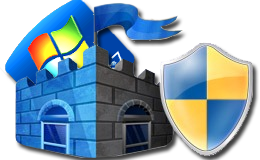Do Virus Scanners Slow Down Your System?
Does the presence of a virus scanner guarantee reduced performance, or does it have a negligible impact? We test 10 different products to see if you’re unknowingly suffering with security software.
Conclusion: A Pleasant Surprise

As mentioned on the first page, I came into this story idea aware that I had a prejudiced expectation. Although I’d never actually tested it for myself, I was under the impression that the presence of a resident virus scanner would have an adverse effect on system performance.
I’m very happy to report that my preconceptions have no place in today’s PC world, as even single-core processors are able to demonstrate comparable performance with or without modern security software installed. This is true not only for basic virus scanners, but also for comprehensive security suites.
Having said that, it’s also true that the presence of security software isn’t undetectable in all circumstances. We do see an increase in application launch times with a virus scanner installed, but the only significant wait time is a couple seconds added on the first launch of a program. Subsequent launches appear to be cached, and the wait time is almost imperceptible.
The only benchmark that shows a notable performance decrease with a virus scanner installed is PCMark’s productivity suite. Even here the performance hit is only notable with two of the 10 tested security products, and in this case, an increase in Windows Contacts search times is the main cause. While I can’t speak for everyone I know, I do not spend a significant amount of time searching Windows Contacts, so for me this isn’t much of an issue.

While these results are encouraging, a couple of questions need to be answered. As we mentioned at the beginning, we’ve limited our testing to performance with the virus scanner installed. However, what is the performance hit during an actual virus scan? This is something we hope to examine in a follow-up review in the near future.
However, for the time being, we’ve learned that a user can confidently install a virus scanner or Internet security suite without being too concerned about performance consequences. It appears that typical tasks we undertake when using our PCs will not be notably slowed by the security software on which we rely. In the end, I’m pleased to admit that my expectation of a decrease in general PC performance when a virus scanner is installed was incorrect and obsolete.
Stay On the Cutting Edge: Get the Tom's Hardware Newsletter
Get Tom's Hardware's best news and in-depth reviews, straight to your inbox.
Current page: Conclusion: A Pleasant Surprise
Prev Page Single-, Dual-, And Quad-Core Benchmarks-
iam2thecrowe before i read the article, my guess is Norton is the slowest and most useless....Reply -
well from my point of view - antivirus scanner do application loading to take a much longer time and this was proven by your tests.Reply
I think that AV software has no place into todays operating systems except for inexperincied users. I'm investing money to fast SSD disc to improve performace, why the hell intstall AV software to push performance back? -
micr0be talk about heavy modifications on the new set of AVs compared to the older ones ... my surprise is norton which i was expecting to cripple the system to a halt .... very nice article btwReply -
The test rig's CPU looks funny to me.Reply
Athlon II X4 645
3.5 GHz, Quad-Core, 6 MB L3 Cache
Isn't that a Phenom?
Most Popular

